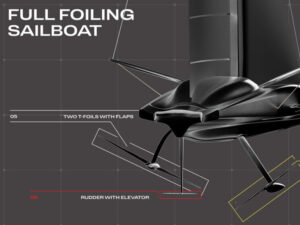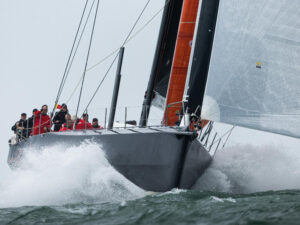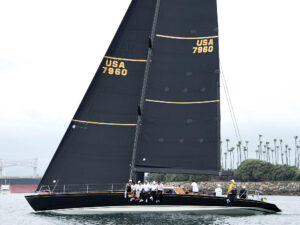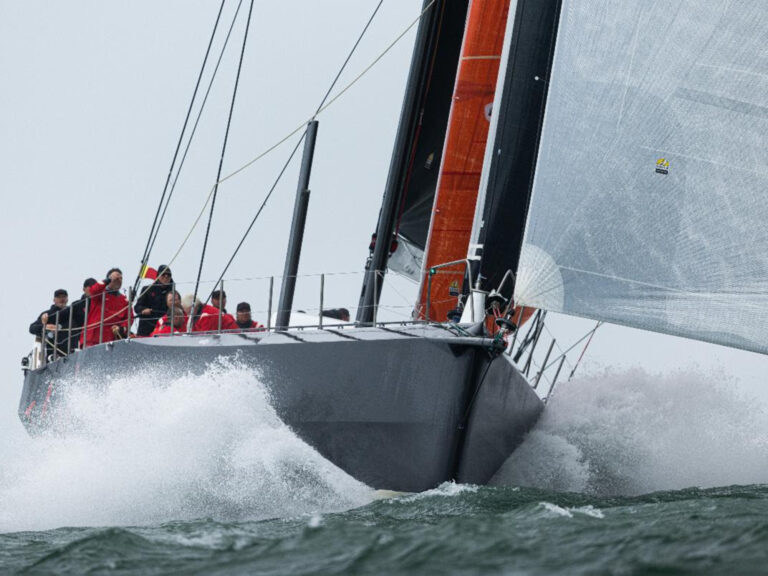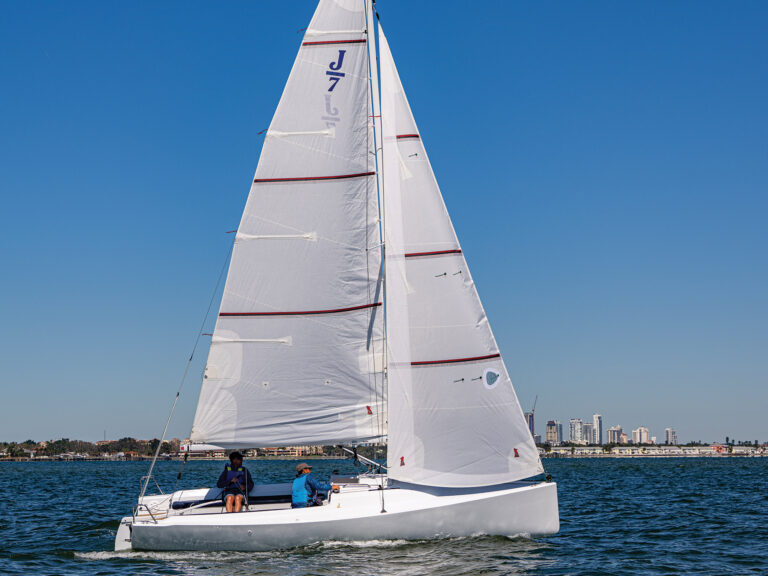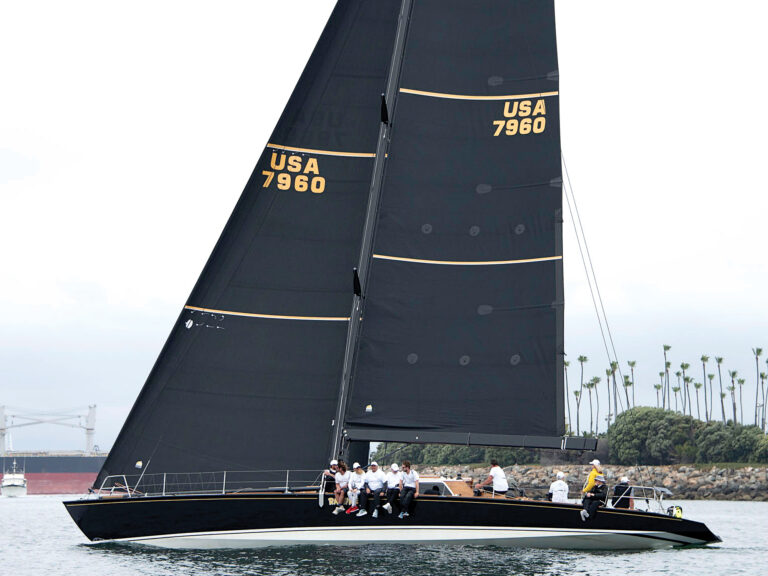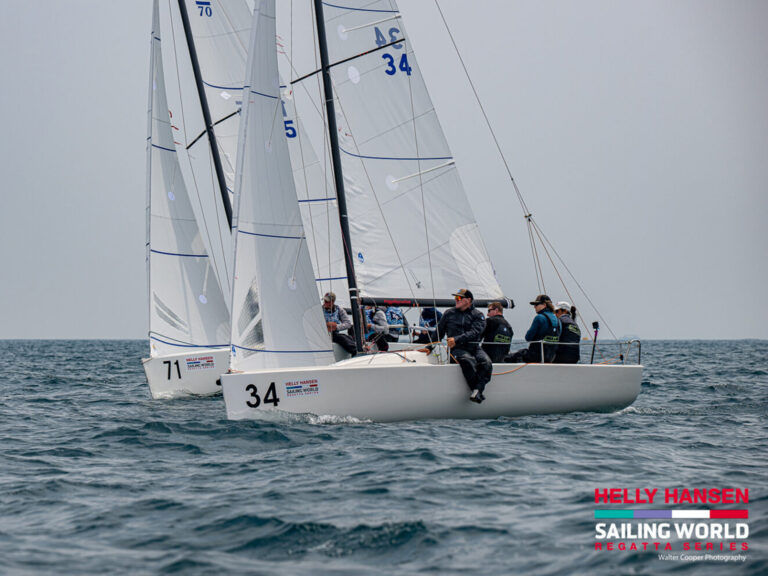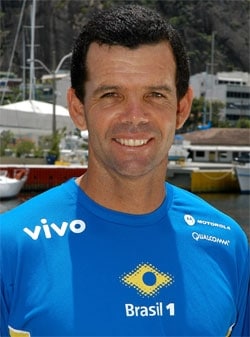
Torben Grael
Your record speaks for itself, five Olympic medals, two of them gold. Where do you find your motivation to succeed in sailing? The first thing is to have fun for sure. I enjoy sailing, I think it’s a wonderful sport. Then, of course, I’m a competitive person so I always want to do better and improve everything I do. In sailing it’s the same thing. You won your second gold medal in Athens, dominating a very competitive Star fleet. Do you consider that performance the pinnacle of your career to date? It’s hard to answer. Winning a gold medal is always a peak in your career. The one in Athens was very special, being the second one and making me the best Olympic athlete in Brazil, and being in Athens with all the atmosphere of where the Games started. It was really very special. Your first gold medal came in Savannah in 1996. Can you compare your emotions then to your emotions last summer in Greece. They were definitely different. It’s the same good feeling, but different for sure. It’s very hard to define those things. The feeling we had in Athens was just fantastic. I think media-wise, because of all the advancement in communication, it was so much bigger than last time, especially here in Brazil. That’s one of the things that made possible our around-the-world project here. Do you think it would’ve been more difficult or even impossible to get the Brasil 1 Volvo Ocean Race project going without the strong performance (gold in Star and Laser and a near miss in the Men’s Mistral) of the Brazilian sailing team in Athens? Certainly it would’ve been a lot more difficult. [Our Olympic results] raised the atmosphere of the sport here which made it a lot easier to sell the project. Tell us a little bit more about your relationship with the Star boat. You’ve been sailing it for nearly 20 years. I started in the end of 87. I have a very good relationship with the Star boat itself, the star class as well, it’s a very good organization. I think the boat suits me and I have a lot of fun sailing the boat. With your resume and closing in on 45 years of age, why have you decided to tackle one of sailing’s most grueling events, the Volvo Ocean Race? I have done a lot of Olympic sailing already and I have done two America’s Cups-which is also very fun and very stressful too, but very fun. Something that I enjoy a lot is sailing at high speeds and I think the Volvo is very good for that and I look forward very much to the Southern Ocean legs. It’s something very different, so that’s a big motivation for me to do the race. What sort of ocean racing have you done in the past? My first big-boat race, long course, was Cape Town to Rio, which was in 1993. Then I did the Transpac in 95 and I did the Sydney to Hobart in 96 with Morning Glory. In 97 I did the third leg of the Whitbread, with Knut Frostad on Innovation Kvaerner, from Perth to Sydney. So you’ve had a taste of rough conditions, but no full-on Southern Ocean experience. No, not in the Southern Ocean. I always hear very good stories about it. There are people that hate it and people that love it. I think you’re going to have your best sailing and some of your worst moments in sailing. One of the sailors on Brasil 1 will be your long-time Star crew Marcelo Ferreira. What will he bring to the program? It’s a very strong relationship we have together. Marcelo has a great attitude and is a great crew as well. He’s going to make the trip a lot more fun and I think that’s the way it should be. Most of the Volvo programs are international in nature, yet your program is strongly nationalistic, from the name right down to the crew selection. It is important for us, that’s why we built the boat in Brazil. I think it wouldn’t be possible to create the same enthusiasm that we experienced with the media and with people here without making the boat here and having a good deal of the crew from Brazil. It’s a very expensive project and I think everybody is very proud of it and I think this makes it more fun too. There’ll be a stopover in Rio. What would it be like to lead the fleet into the harbor on that leg? That would be fantastic, but there’s a lot of people with different plans. We have to work hard for that. You’re also involved with the Grael Project, teaching sailing to underprivileged children. How long have you been working on that? It started in 98 and it’s a thing that gives us a lot of work but gives a lot of good feeling back. You feel very proud about it. I had the opportunity to do my sport when I was young, so I feel it’s very good give these kids an opportunity as well. What is the mission of the project? We started just teaching kids to sail but then we realized a lot of the kids didn’t know how to swim properly and so we actually first teach them how to swim properly, then they learn how to sail, the basics, and then they learn how to race. The last couple of years there’s been a big change in the project trying to raise the interest in them to work in the nautical [industry] with carpentry, fiberglass, and mechanics and everything related to the nautical market. We have people that are happy to work in the market like this and they’ve started early so they have a good education and they have a future if they want to keep doing the sport. How do children qualify for the program? All we ask of them is to be in public schools. Normally wealthier people go to private schools. All they have to do fill the application. Back to the Volvo campaign. When will you start sailing the boat? We had the boat christened on June 23. Sea trials began right after. How do you proceed from there. Time is short, so where do you focus your energy? The first thing is to have everything working properly. Doing the trials, making sure everything is working well, not breaking, and have a minimum confidence in the boat so we can start sailing and pushing the boat harder. Then doing sail testing and crew training before we go across the Atlantic to Portugal. When do you plan on sailing for Europe? We are planning on leaving in the end of July, so we have more or less one month of sailing in Brazil before we cross. In the beginning of July there’s the biggest big-boat event in Brazil, which is the Ilhabela Regatta, in Sao Paolo. We’re planning to do the long race in that event. Do you have any feel for the other campaigns at this stage, who is looking particularly strong? It’s hard to tell at this moment. But I think it’s quite open. It’s a new class, some new ideas going on. Everybody hasn’t had a lot of time on the boat, which is different from last time where illbruck spent so much time on the boat. Telefonica has a small advantage I would say because they have done a smart project of sailing very good miles and sailing some of the legs of the race. So they have more experience than others but I think it’s OK. And once the Volvo Race is over, will you get back into the Star class? I think once this is over I’m getting involved with Prada [aka Luna Rossa Challenge] again.

